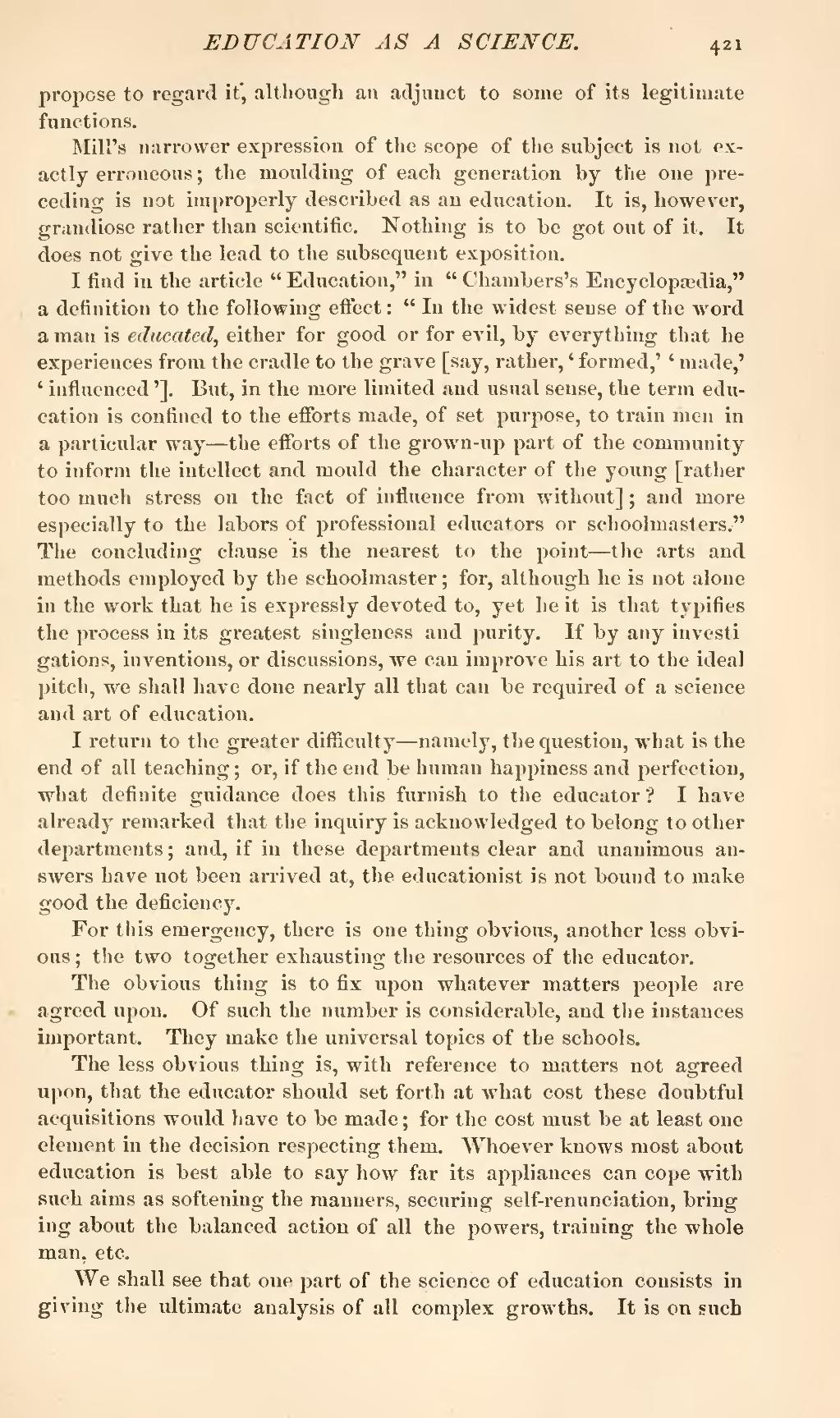propose to regard it, although an adjunct to some of its legitimate functions.
Mill's narrower expression of the scope of the subject is not exactly erroneous; the moulding of each generation by the one preceding is not improperly described as an education. It is, however, grandiose rather than scientific. Nothing is to be got out of it. It does not give the lead to the subsequent exposition.
I find in the article "Education," in "Chambers's Encyclopædia," a definition to the following effect: "In the widest sense of the word a man is educated, either for good or for evil, by everything that he experiences from the cradle to the grave [say, rather, 'formed,' 'made,' 'influenced']. But, in the more limited and usual sense, the term education is confined to the efforts made, of set purpose, to train men in a particular way—the efforts of the grown-up part of the community to inform the intellect and mould the character of the young [rather too much stress on the fact of influence from without]; and more especially to the labors of professional educators or schoolmasters." The concluding clause is the nearest to the point—the arts and methods employed by the schoolmaster; for, although he is not alone in the work that he is expressly devoted to, yet he it is that typifies the process in its greatest singleness and purity. If by any investigations, inventions, or discussions, we can improve his art to the ideal pitch, we shall have done nearly all that can be required of a science and art of education.
I return to the greater difficulty—namely, the question, what is the end of all teaching; or, if the end be human happiness and perfection, what definite guidance does this furnish to the educator? I have already remarked that the inquiry is acknowledged to belong to other departments; and, if in these departments clear and unanimous answers have not been arrived at, the educationist is not bound to make good the deficiency.
For this emergency, there is one thing obvious, another less obvious; the two together exhausting the resources of the educator.
The obvious thing is to fix upon whatever matters people are agreed upon. Of such the number is considerable, and the instances important. They make the universal topics of the schools.
The less obvious thing is, with reference to matters not agreed upon, that the educator should set forth at what cost these doubtful acquisitions would have to be made; for the cost must be at least one element in the decision respecting them. Whoever knows most about education is best able to say how far its appliances can cope with such aims as softening the manners, securing self-renunciation, bringing about the balanced action of all the powers, training the whole man, etc.
We shall see that one part of the science of education consists in giving the ultimate analysis of all complex growths. It is on such
